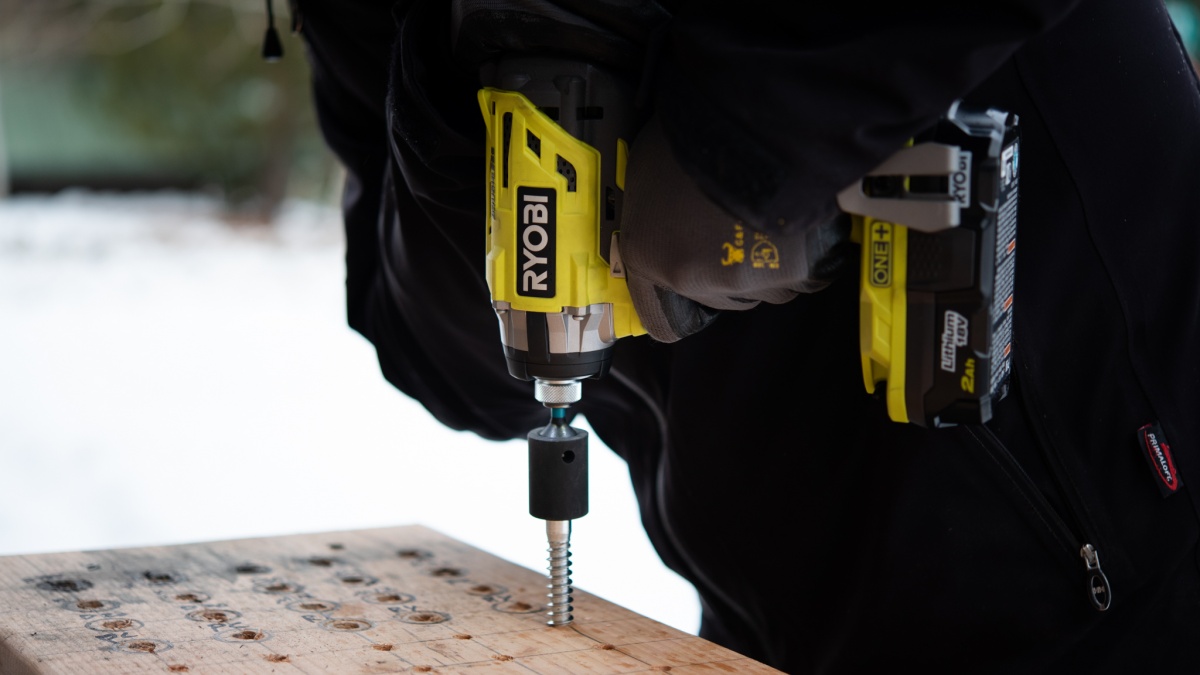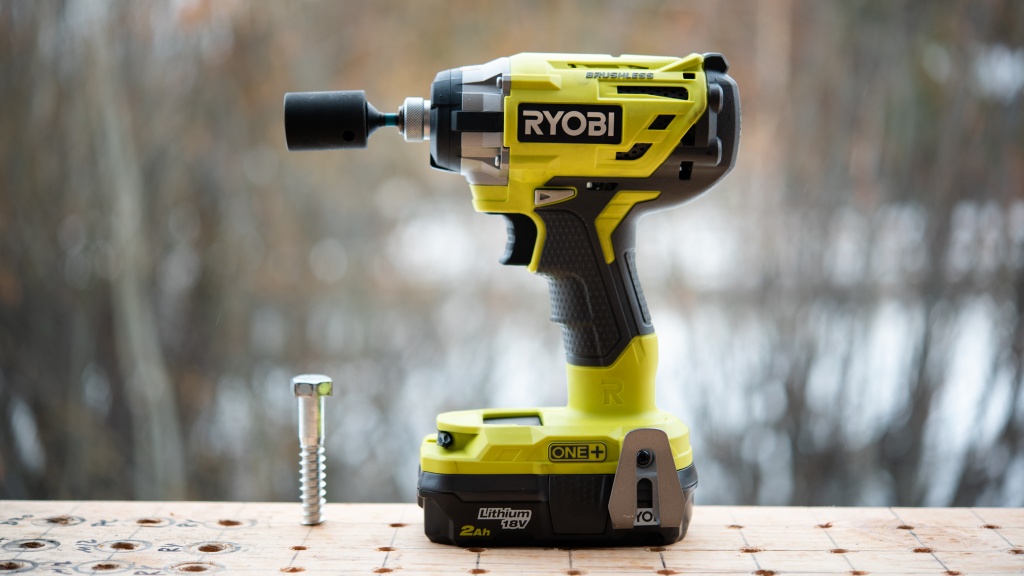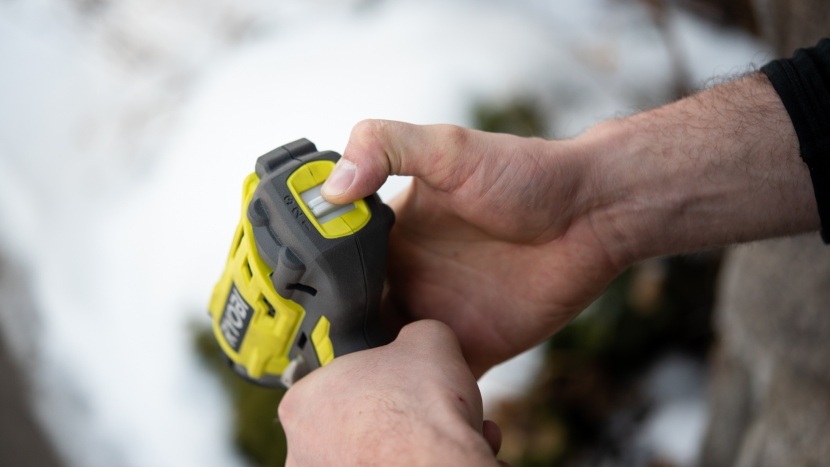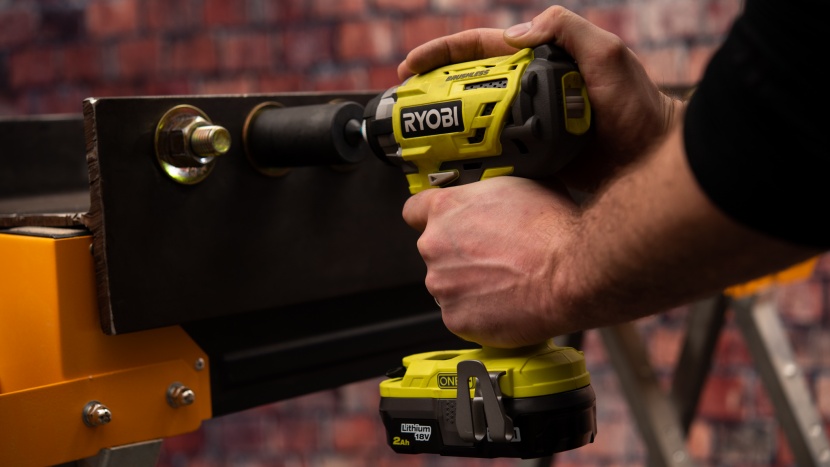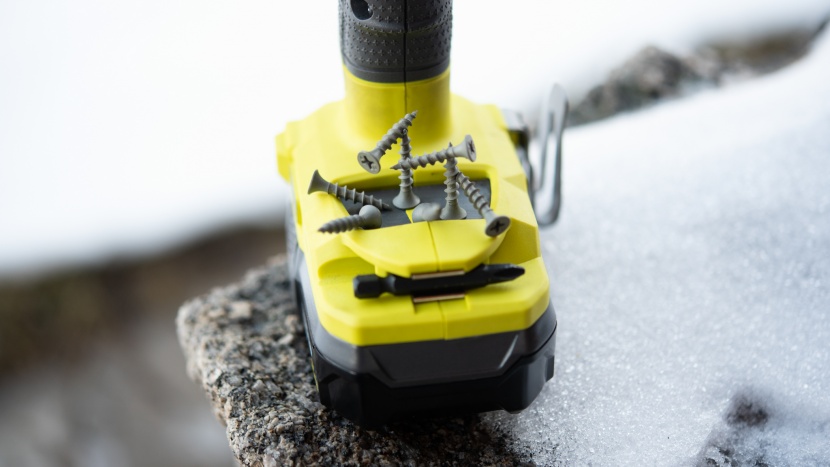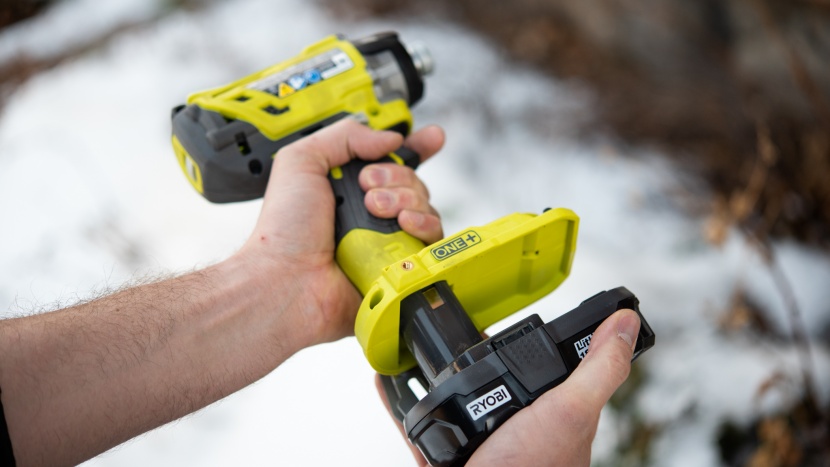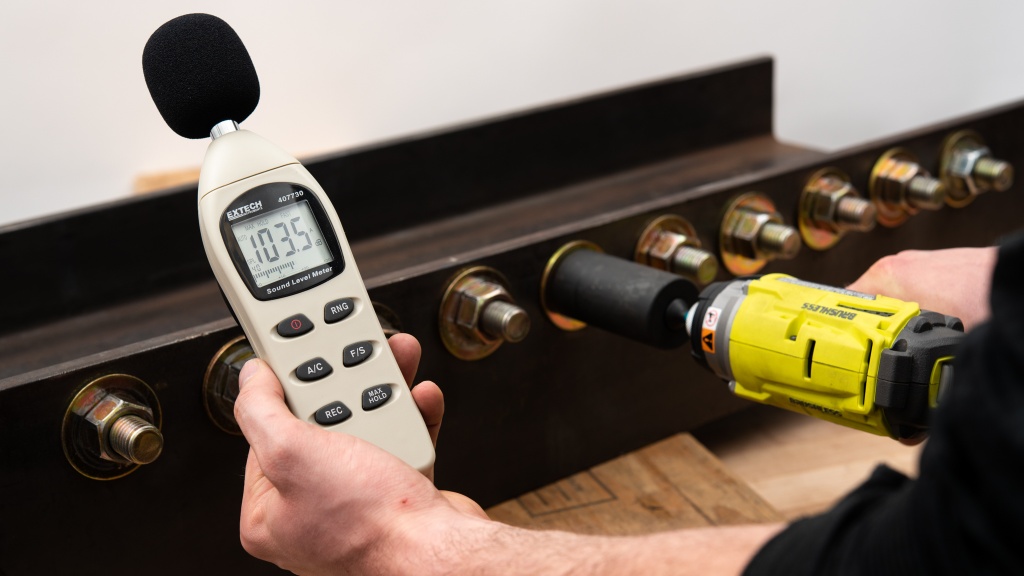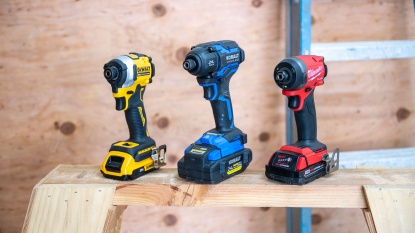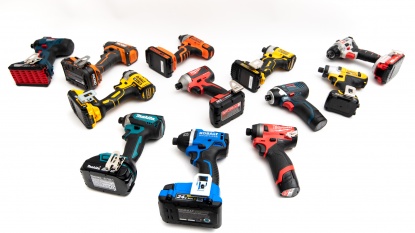
Our Verdict
Our Analysis and Test Results
Speed
The Ryobi P238 is one of the fastest drivers we tested, with its ability to sink lag bolts being particularly impressive. In our test, it drove a ½" by 3" lag bolt into a pre-drilled hole in just 14 seconds. For comparison, the average among all of the models we tested was 30 seconds, making the P238 is twice as fast as the average impact driver when it comes to lag bolts.
This tool also turned in one of the best performances in our ledger screw test, managing to fully seat a 3-⅝" screw into a stack of plywood in just 5 seconds. Very few models could best this time, and it felt significantly faster than the average time of 7 seconds.
Torque
Torque is one thing that certainly is not lacking with the P238. It was consistently and seemingly effortlessly able to tighten ¾" nuts onto bolts that we welded to an I-beam to 300+ foot-pounds.
Similarly, it could easily loosen nuts that we had tightened to 300-foot pounds.
These test results put the Ryobi in the upper echelon of the impact drivers that have come through our testing lab. If your projects tend to require an extra bit of power, this tool will likely serve you well.
Convenience
The P238 offers a slew of convenient features, with a relatively long front-to-back length being its only particularly inconvenient attribute. First, the Ryobi P238 offers three different RPM settings, which you can easily adjust via a selector on the back of the driver.
There is also a string of LEDs around the chuck that light up during use and stay on for 10 seconds after you take your finger off the trigger. These lights brighten your work area, making it easy to see exactly what you're doing.
Top that off with a quick-insert chuck that makes switching bits fast and effortless, a bit holder that keeps track of your spare bits, and a magnetic plate that holds bits and fasteners, and you've got a tool that offers pretty much all of the bells and whistles.
The only thing we find somewhat inconvenient about the P238 is its length. From front to back, it measures 161mm. This is appreciably more than the average of 144mm and can feel gargantuan compared to the slew of models that fall in the 130mm range. This isn't a big deal for most projects, but if you work in crawl spaces or other cramped areas, that extra heft can be awkward and make it difficult to get the driver in the right position.
Battery
This is one area where the Ryobi is less than impressive. Its battery certainly isn't poor, but it fails to keep up with this tool's stellar performances in our speed and torque tests.
Our battery test involved driving in 14 ledger screws, and then driving a large lag bolt in and out, and then repeating the process until the battery failed. The P238 made it through 2 full rounds of this process. On the third round, it got all 14 ledger screws and the lag bolt in, but the battery died trying to get the lag bolt out. This is a respectable performance, falling right around the average mark. However, there are some equally powerful models that were able to complete five full rounds in this test, which does make the Ryobi's battery feel a bit lacking.
Noise
The bottom line is that the P238 is loud. And sure, all impact drivers are loud, but the P238 averaged 104 dBa at the ear level of the user while driving in ledger screws in our test.
This decibel level is well above our average measurement and loud enough that most safety standards consider continued exposure unsafe.
We always suggest that it is very important that you follow the manufacturer's recommendation concerning personal protective equipment when operating this driver.
Should You Buy the Ryobi P238?
The P238 is a great option for those already owning Ryobi tools and batteries. It is an inexpensive model that offers top-of-its-class performance in speed and torque. However, this price point model doesn't offer the same convenient features or battery-staying power as other professional-grade models. For those looking into their first set of electric tools, it may be worthwhile to consider investing in higher-end tools at the get-go to avoid the potential of having to upgrade further down the road.
What Other Impact Drivers Should You Consider?
The Ryobi P238 offers good performance for a relatively average price. However, some models on the market perform slightly better while costing the same or less. Options like the Makita XDT13 offer exceptional battery life, especially compared to the P238. For a small price increase, you could upgrade to the award-winning Milwaukee M18 Fuel, which offers a nice balance of speed, torque, convenience, and battery life.


